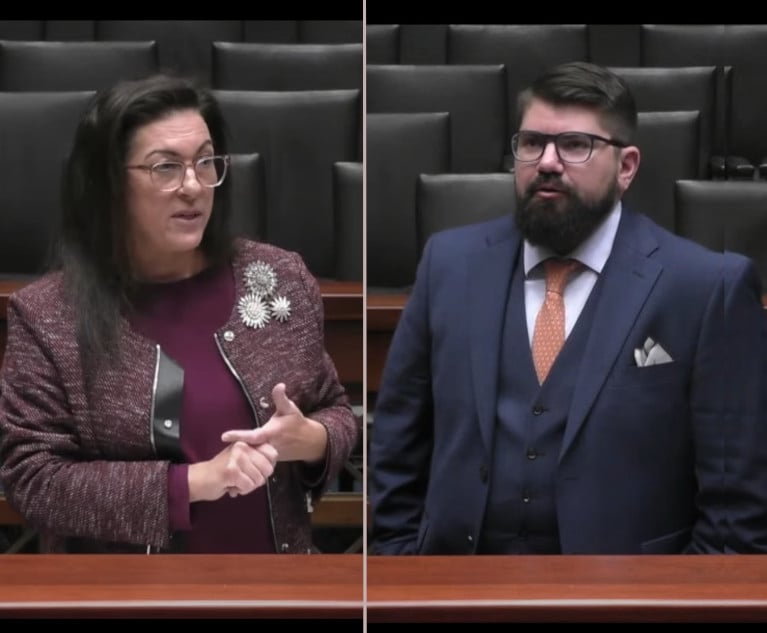 Credit: thodonal/Adobe Stock
Credit: thodonal/Adobe Stock Preserving Confidentiality: Strategies for Employers Amid the FTC Ban on Noncompetes
"Given national trends hostile to noncompete agreements, this is a good time for employers to review how, and if, they are taking the steps necessary to protect their businesses," writes Stephen Irving of Peckar & Abramson.
June 20, 2024 at 10:00 AM
8 minute read
The Texas courts have long had a love/hate relationship with noncompete agreements. For some time, such restrictions were considered unenforceable until the legislature stepped in four decades ago. While referring to such agreements as "restraints of trade," the legislature nonetheless provided guidelines for drafting such agreements in an ostensibly enforceable manner. However, practitioners in this area of law know that the space between a well-drafted agreement and the enforcement of that agreement is not a straight line. And now the Federal Trade Commission (FTC) has stepped into the fray attempting to outlaw all "noncompete" agreements entirely. This article discusses the strategies employers may use, with or without noncompetes, to protect their most guarded information and work product and how the Texas courts have dealt with these issues.
On April 23, 2024, the FTC announced a new rule intended to ban noncompete agreements for all employees, including senior executives. 89 FR 38342 (2024). While the rule permits the continued enforcement of noncompete agreements for certain senior executives entered into before Sept. 4, 2024, the effective date of the rule, and noncompete agreements connected to an individual's sale of a business, these exceptions provide little solace for employers who rely on noncompetes to protect against unfair competition. The FTC's Non-Compete Clause Rule reflects a growing sentiment among legislators and judges nationally that noncompetes are unfair to the individuals restricted by those agreements. Multiple lawsuits have now been filed in the federal courts in Texas seeking to invalidate the rule nationwide on the basis that it violates the U.S. Constitution, and the FTC exceeded its authority under the Federal Trade Commission Act. As of the date of this writing, no court has taken action, but it is widely expected that the rule will be delayed and, in fact, may not ever become effective.
This content has been archived. It is available through our partners, LexisNexis® and Bloomberg Law.
To view this content, please continue to their sites.
Not a Lexis Subscriber?
Subscribe Now
Not a Bloomberg Law Subscriber?
Subscribe Now
NOT FOR REPRINT
© 2025 ALM Global, LLC, All Rights Reserved. Request academic re-use from www.copyright.com. All other uses, submit a request to [email protected]. For more information visit Asset & Logo Licensing.
You Might Like
View All
Houston Appeals Court Split Over Race Discrimination Suit Involving COVID-19 Vaccine Distribution
4 minute read
Overtime Rewind: Texas Court Ruling Unravels FLSA Salary Level Increases
4 minute read
'It's Like They Lynched You:' Law Professor's Discrimination Claim Reaches High Court
7 minute readTrending Stories
- 1Firms Come Out of the Gate With High-Profile Litigation Hires in 2025
- 2Legal Departments, Firms Expect Gen AI to Boost ALSP Usage
- 3Law Firms Are 'Struggling' With Partner Pay Segmentation, as Top Rainmakers Bring In More Revenue
- 4Diversity Lab Alters DEI-Centered Verbiage on Mansfield Certification Website
- 5Tuesday Newspaper
Who Got The Work
J. Brugh Lower of Gibbons has entered an appearance for industrial equipment supplier Devco Corporation in a pending trademark infringement lawsuit. The suit, accusing the defendant of selling knock-off Graco products, was filed Dec. 18 in New Jersey District Court by Rivkin Radler on behalf of Graco Inc. and Graco Minnesota. The case, assigned to U.S. District Judge Zahid N. Quraishi, is 3:24-cv-11294, Graco Inc. et al v. Devco Corporation.
Who Got The Work
Rebecca Maller-Stein and Kent A. Yalowitz of Arnold & Porter Kaye Scholer have entered their appearances for Hanaco Venture Capital and its executives, Lior Prosor and David Frankel, in a pending securities lawsuit. The action, filed on Dec. 24 in New York Southern District Court by Zell, Aron & Co. on behalf of Goldeneye Advisors, accuses the defendants of negligently and fraudulently managing the plaintiff's $1 million investment. The case, assigned to U.S. District Judge Vernon S. Broderick, is 1:24-cv-09918, Goldeneye Advisors, LLC v. Hanaco Venture Capital, Ltd. et al.
Who Got The Work
Attorneys from A&O Shearman has stepped in as defense counsel for Toronto-Dominion Bank and other defendants in a pending securities class action. The suit, filed Dec. 11 in New York Southern District Court by Bleichmar Fonti & Auld, accuses the defendants of concealing the bank's 'pervasive' deficiencies in regards to its compliance with the Bank Secrecy Act and the quality of its anti-money laundering controls. The case, assigned to U.S. District Judge Arun Subramanian, is 1:24-cv-09445, Gonzalez v. The Toronto-Dominion Bank et al.
Who Got The Work
Crown Castle International, a Pennsylvania company providing shared communications infrastructure, has turned to Luke D. Wolf of Gordon Rees Scully Mansukhani to fend off a pending breach-of-contract lawsuit. The court action, filed Nov. 25 in Michigan Eastern District Court by Hooper Hathaway PC on behalf of The Town Residences LLC, accuses Crown Castle of failing to transfer approximately $30,000 in utility payments from T-Mobile in breach of a roof-top lease and assignment agreement. The case, assigned to U.S. District Judge Susan K. Declercq, is 2:24-cv-13131, The Town Residences LLC v. T-Mobile US, Inc. et al.
Who Got The Work
Wilfred P. Coronato and Daniel M. Schwartz of McCarter & English have stepped in as defense counsel to Electrolux Home Products Inc. in a pending product liability lawsuit. The court action, filed Nov. 26 in New York Eastern District Court by Poulos Lopiccolo PC and Nagel Rice LLP on behalf of David Stern, alleges that the defendant's refrigerators’ drawers and shelving repeatedly break and fall apart within months after purchase. The case, assigned to U.S. District Judge Joan M. Azrack, is 2:24-cv-08204, Stern v. Electrolux Home Products, Inc.
Featured Firms
Law Offices of Gary Martin Hays & Associates, P.C.
(470) 294-1674
Law Offices of Mark E. Salomone
(857) 444-6468
Smith & Hassler
(713) 739-1250







